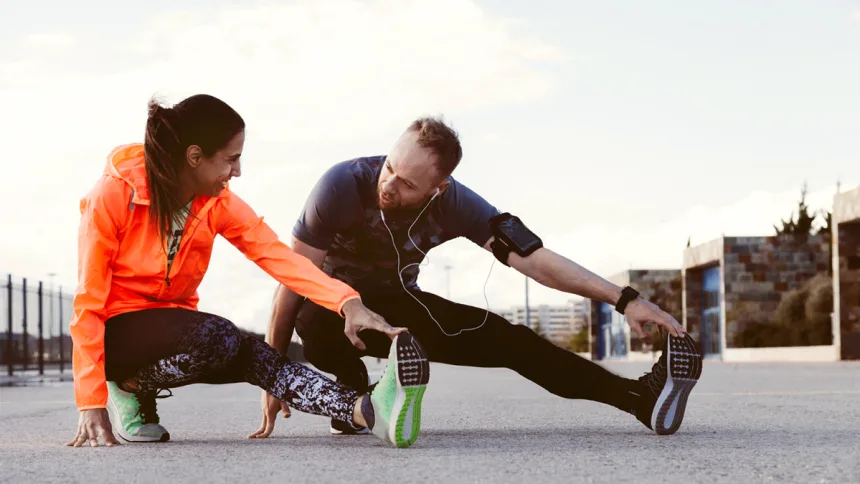Over 84 million persons worldwide suffered from (Attention-Deficit/Hyperactivity illness) ADHD in 2019, which translates to an age-standardized prevalence of 1.13%. According to estimates, the incidence of ADHD in the United Arab Emirates is roughly 9.2% overall and 4% among children, with greater rates among young adults.
These numbers highlight how common ADHD is throughout the world and how crucial it is to raise awareness, get a proper diagnosis, and provide treatment to people of all ages.
What is ADHD?
The neurodevelopmental illness known as ADHD (Attention-Deficit/Hyperactivity illness) is typified by recurrent patterns of impulsivity, hyperactivity, and inattention that impede growth or functioning. It typically shows up in childhood and can persist throughout adulthood, impacting social, professional, and academic performance.
Symptoms of ADHD
Inattention and hyperactivity-impulsivity are the two primary categories into which the symptoms of Attention-Deficit/Hyperactivity Disorder (ADHD) are usually divided. One or both of these categories may be present in people with ADHD.
- Inattention symptoms
- Inability to focus while performing work or engaging in play activities
- Regular errors brought on by negligence or inattention
- Having trouble planning activities and tasks
- Distaste or avoidance of activities requiring prolonged mental effort, such as homework
- Frequently misplacing things needed for activities (e.g., school supplies, keys)
- Easily sidetracked by unimportant stimulus
- Ignorance in day-to-day tasks
- Hyperactivity impulsivity symptoms
- Wriggling in a chair, fidgeting with hands or feet
- Lack of ability to stay seated when it’s anticipated
- Running or climbing while not supposed to (in youngsters)
- Unable to play or do leisure activities in silence
- Frequently “on the go” or behaving as though they are “driven by a motor”
- Talking too much
- Answers are blurred out before the questions are finished.
- Having trouble waiting one’s turn
- Disrupting or interfering with the games or conversations of others
Standard management
Behavioural therapy, medication, and lifestyle modifications are commonly used in the treatment of ADHD. The main goals of behavioural therapy are social interaction improvement, organizational skill improvement, and coping strategy development. Drugs that assist control the chemicals in the brain linked to attention and impulse control include stimulants (such methylphenidate and amphetamines) and non-stimulants. Changes in lifestyle, such as consistent exercise, a healthy diet, and regimented schedules.
Also Read : Stay Active, Stay Young: The Role of Muscle Memory in Healthy Ageing
Role exercise and physical activity in ADHD
Due to their physiological and psychological advantages, exercise and physical activity are important in the treatment of ADHD (Attention-Deficit/Hyperactivity Disorder). Regular exercise can support conventional ADHD treatments like medication and behavioural therapy in a number of ways, according to research.
- Improvement in core ADHD symptoms
- Hyperactivity and impulsivity – By burning off extra energy, exercise helps people become less impulsive and hyperactive. Exercises that demand coordination and concentration, like yoga or martial arts, can be especially helpful.
- Inattention – Because it increases the production of neurotransmitters like dopamine and norepinephrine, which are frequently lacking in people with ADHD, physical activity can help people focus and pay attention for longer periods of time.
- Enhancement of executive functioning
- Exercise has been demonstrated to enhance executive processes, such as self-regulation, working memory, and cognitive flexibility. People with ADHD frequently struggle in these areas.
- Mood regulation
- Because regular exercise increases the creation of endorphins, which are naturally occurring mood enhancers, it can improve mood. This can lessen the symptoms of despair and anxiety, which frequently accompany ADHD.
- Exercise is a natural way to reduce stress. Exercises that lower cortisol levels, such as swimming, jogging, or even walking, might lessen anxiety and stress.
- Improvement in sleep
- Sleep difficulties are common among people with ADHD. By controlling the body’s internal clock and shortening the time it takes to fall asleep, regular exercise can help improve sleep habits.
- Behavioural and social benefits
- Social skills, discipline, and teamwork can all be enhanced by taking part in team sports or other group activities. These exercises offer controlled settings that might lessen disruptive conduct and promote positive behaviour.
- Increased self-esteem and confidence
- Achievement in physical activities can increase confidence and self-worth, especially for kids with ADHD who might have trouble in school.
- Development of motor skills
- Some people with ADHD may have delayed motor abilities, which can be improved by physical activity. Activities that require agility, balance, and coordination can be very beneficial.
- Types of beneficial exercises
- Aerobic Exercises – Dancing, swimming, cycling, and running all enhance cognitive and cardiovascular health.
- Mind-Body Exercises – Tai chi and yoga encourage mindfulness and relaxation, which can aid in emotional control.
- Martial Arts: These practices, which place an emphasis on self-control, concentration, and respect, can aid in the effective management of ADHD symptoms.
Practical recommendations
- Routine – It is essential to include regular, scheduled physical activity in the daily schedule.
- Variety – Providing a range of activities helps maintain motivation and avoid boredom.
- Support – The benefits of physical activity can be amplified with the encouragement and assistance of coaches, instructors, and parents.
In conclusion, exercise is a useful adjunct to conventional ADHD therapies, but it shouldn’t be used in place of them. Frequent exercise can help people with ADHD manage their condition more effectively by enhancing their mental and physical well-being.




















